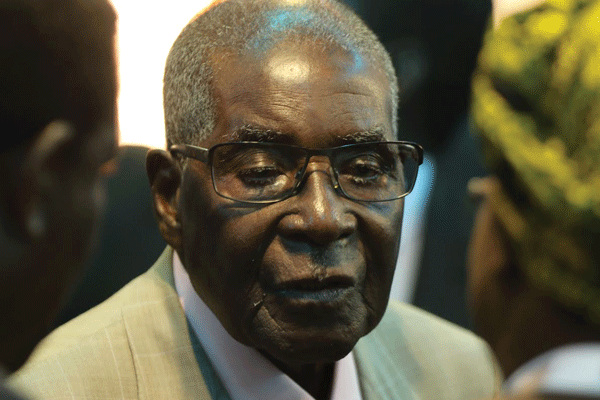
A RECENT report by the United States Department of State Bureau of Democracy and Human Rights and Labour (DRL) on 2017 human rights practices by different countries criticised former President Robert Mugabe’s government for restricted academic freedom.
BY VENERANDA LANGA
The report said Mugabe, who was chancellor of all State-run universities had his then political party, Zanu PF controlling the Higher Education ministry, resulting in spooks from the Central Intelligence Organisation (CIO), assuming faculty positions, and at times posing as students at institutions of higher learning.
“The government restricted academic freedom, and Zanu PF controlled the Higher Education ministry, with laws restricting the independence of universities, subjecting them to government influence and providing disciplinary powers over staff and students to university authorities,” the US report said.
“CIO operatives at times assumed faculty and other positions, or posed as students, at public and some private universities to intimidate and gather intelligence on faculty and students, who criticised government policies and actions and CIO officers regularly attended classes in which noted MDC activists were lecturers or students,” the report read.
The report said in response, both faculty and students often practiced self-censorship, resulting in State-run universities cancelling scheduled events organised by foreign embassies and refused public lectures by foreign diplomats.
On restrictions to freedom of assembly pertaining to arts and culture events, the report said the government on occasion restricted human rights activists from using cultural platforms to criticise the ruling party, the President, or political violence.
“The Constitution provides for freedom of peaceful assembly, but the government often restricted this right. The Public Order and Security Act (Posa) requires organisers to notify the police of their intention to hold a public gathering − defined as 15 or more individuals − seven days,” the report said.
- Chamisa under fire over US$120K donation
- Mavhunga puts DeMbare into Chibuku quarterfinals
- Pension funds bet on Cabora Bassa oilfields
- Councils defy govt fire tender directive
Keep Reading
It further went on to say that authorities often denied requests by civil society, trade unions, religious groups, or political parties other than Zanu PF to hold public events if the agenda conflicted with Zanu PF policy positions.
“There were several reports of political rallies interrupted by opposing political parties. On June 26, police arrested and used violent force against students protesting a decision by the University of Zimbabwe to raise tuition for medical students.”











